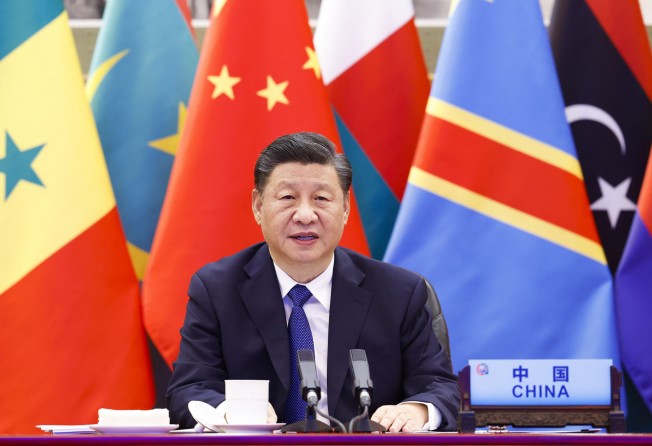
Beijing jab donations show it has health of Africa at its heart
- A forum with countries from the continent has illustrated that in times of crisis China’s interest extends beyond economic and infrastructure development

Relations between China and Africa are healthy, as demonstrated by the recent forum between the sides hosted by Senegal. Among the agreements forged were pacts on cooperation to 2035 and a declaration on climate change.
Importantly for the continent, President Xi Jinping announced a donation of 1 billion coronavirus vaccines to improve a worryingly low immunisation rate, urgently needed as a new variant takes hold. The moves are proof that ties are strengthening despite global challenges, to the benefit of Africans and Chinese.
Just 7 per cent of Africans are fully vaccinated and China’s aim is to raise that to 60 per cent next year. The Omicron variant, which was first identified in southern Africa, is believed in part to have mutated due to low vaccination rates.
Xi’s pledge at the Forum of China-Africa Cooperation is therefore timely. In addition to the 1 billion doses – 600 million to be donated, the rest to be produced in partnership with African firms – Beijing will deploy 1,500 Chinese medical personnel.

But as other announcements at the ministerial meeting showed, Beijing’s commitment to African nations runs deep. Allaying concerns that loans would dry up, Xi announced an expansion of trade and investment.
Of the US$30 billion pledged, US$10 billion was earmarked to boost African imports and the same amount allocated to African financial institutions for lending to small and medium-sized enterprises. Interest-free loans due this year would be written off and Chinese firms encouraged to invest a further US$10 billion in Africa.
Under the 2035 vision plan, there will be nine projects for the first three years, including health, poverty alleviation, trade promotion, green development and digital innovation.
These are on top of the scores of billions of dollars of deals Chinese companies have already struck with Africa under Beijing’s Belt and Road Initiative. On the eve of the forum, another two countries, Eritrea and Guinea-Bissau, signed on.
The highways, railways, ports and power plants that have already been funded by China under the infrastructure development strategy, have created jobs and opportunities and boosted commerce and trade. Just five of Africa’s 54 nations have not joined.
Beijing pledged US$60 billion for projects at the forum in Johannesburg in 2015 and a similar amount at the last gathering in Beijing in 2018.
China overtook the United States for trade with Africa in 2009 and the level hit a historic high of US$185.2 billion in the first nine months of this year. That is not to say all is rosy with ties; there is a substantial imbalance in imports and exports.
But as the forum showed, Beijing is as interested in the health of Africans as the continent’s economic and infrastructure development.